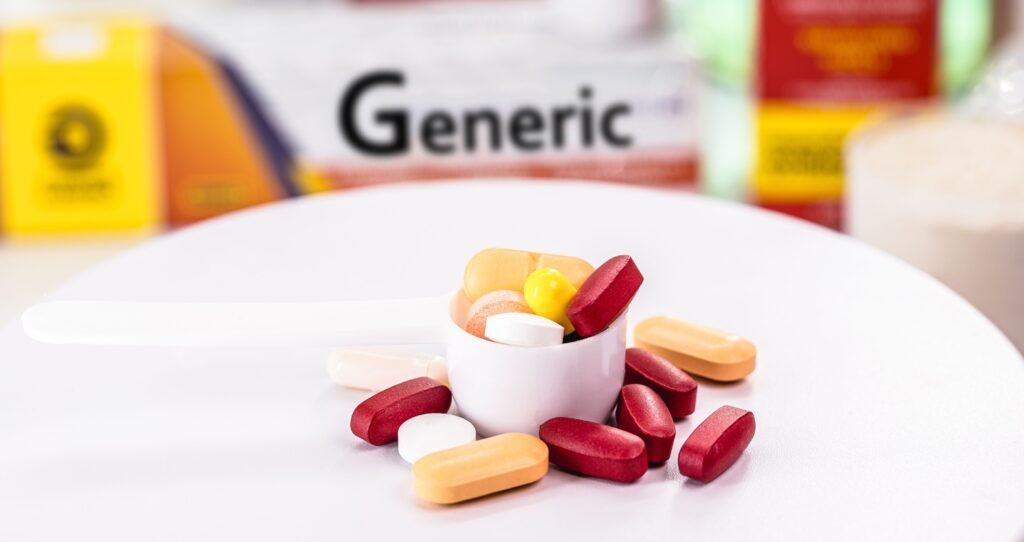Harnessing the Power of Older Generic Medications in Dermatology
Older generic medications are gaining recognition in dermatology for their effectiveness, safety, and affordability. Recent discussions at the 2025 American Academy of Dermatology Annual Meeting highlighted the benefits of using classic therapies in treating a range of skin conditions while overcoming challenges such as high costs and tedious prior authorization processes.
The Economic Advantage of Generic Medications
Experts emphasize that older medications like cyclosporine, nicotinamide, and dapsone not only address various dermatological issues but also alleviate financial burdens on patients. These medications often cost significantly less than newer treatments, including biologics and Janus kinase (JAK) inhibitors, which can be 10 to 50 times more expensive.
Key Benefits:
- Cost-effective treatment options
- Fewer delays in receiving care
- Lower financial barriers for underinsured or uninsured patients
Matthew S. Keller, MD, from Thomas Jefferson University, noted that these older treatments allow patients to start their therapies without the long wait associated with prior authorization, particularly benefiting those who might struggle with high out-of-pocket costs.
Emphasizing Patient Safety and Equity
Despite the growing popularity of newer medications, Keller pointed out that many older therapies come with robust safety data. He stressed the need for dermatologists to remain equipped with knowledge about these treatments, especially in underserved areas worldwide.
Cultural Insights:
- Understanding the “colonial curriculum”: This term illustrates a gap in treatment options available in developing countries, where newer therapies may not be accessible.
- Global Citizenship: Keller encouraged sustaining the use of generic medications to better serve communities worldwide.
Spotlight on Effective Generic Medications
1. Cyclosporine: A Time-Tested Treatment
Cyclosporine is known to inhibit specific interleukins and is primarily used for severe plaque psoriasis in non-immunocompromised adults. Here are some important points about its use:
- Dosage: Typically prescribed at 3 mg/kg to 5 mg/kg, with many patients taking 300 mg to 350 mg daily.
- Safety Monitoring: Renal function and blood pressure need close monitoring, especially in older adults.
“At least early on, this is not true kidney damage; it’s more like kidney injury or insult that can be remedied by dosage adjustments,” Keller explained.
2. Nicotinamide: Addressing Inflammation
Nicotinamide, or niacinamide, is a form of vitamin B3 that excels in anti-inflammatory effects. Common uses include:
- Skin Conditions: Effective for acne, rosacea, and atopic dermatitis.
- Chemoprevention: Higher oral doses may reduce the risk of non-melanoma skin cancers.
“Overall, evidence suggests that nicotinamide is a safe and well-tolerated medication for a range of inflammatory dermatosis,” noted Neda Nikbaht, MD, PhD.
3. Dapsone: An Essential Player in Dermatology
Dapsone, FDA-approved for leprosy and dermatitis herpetiformis, is also used for treating several conditions, including acne and bullous pemphigoid. Important points to consider:
- Dosage: Typically ranges from 50 mg to 200 mg daily.
- Safety Monitoring: Regular blood count monitoring is recommended due to the risk of hemolytic anemia, particularly in patients with G6PD deficiency.
“We must be very keen on what’s out there and what we can use for our patients in select cases where the disease is rare,” emphasized Elizabeth Jones, MD.
Conclusion
The current landscape of dermatological treatment is evolving, with a renewed focus on older generic medications. Their affordability, efficacy, and extensive safety records make them critical tools in treating various skin conditions. As dermatologists navigate this dynamic field, leveraging these generics can enhance patient care while addressing healthcare equity on a global scale.
Additional Reading
- Understanding Biologics in Dermatology
- The Importance of Early Dermatological Treatment
- Generic Medications: Affordable Options
By recognizing the potential of older therapies, dermatologists can help ensure that effective treatment is accessible to all patients, regardless of their circumstances.


